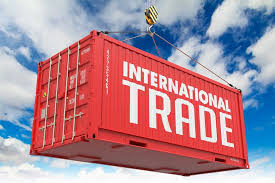Trade is an essential part of the global economy, connecting countries and facilitating the exchange of goods and services. It plays a crucial role in the prosperity and development of nations around the world. In this article, we will explore the concept of trade and its various types, catering to the audience in the USA, UK, Canada, Germany, and Australia.
Trade can be defined as the act of buying and selling goods and services between countries or regions:
It allows nations to obtain products that they may not be able to produce domestically and enables them to specialize in the production of goods and services where they have a comparative advantage. Trade can take place on a local, regional, national, or international level, and it is a cornerstone of the modern global economy.
There are several types of trade, each serving different purposes and involving distinct methods of exchange. The most common types of trade are:
1. International Trade:
This type of trade involves the exchange of goods and services between different countries. International trade can take place through bilateral agreements, multilateral treaties, or under the regulations of international organizations such as the World Trade Organization (WTO).

2. Domestic Trade:
Domestic trade refers to the buying and selling of goods and services within a country’s borders. It encompasses all commercial activities conducted within a nation and forms the backbone of its internal economy.

3. Barter Trade:
Barter trade involves the direct exchange of goods and services without the use of money. In a barter trade system, two parties swap their products or services based on mutual agreement, bypassing the need for currency.

4. E-commerce:
E-commerce trade, also known as electronic commerce, involves the buying and selling of goods and services over the internet. It has gained significant popularity in recent years, allowing businesses and consumers to engage in trade transactions without physical interaction.
5. Fair Trade:
Fair trade aims to promote ethical and sustainable practices in the trading of goods, particularly agricultural products. It ensures that producers in developing countries receive fair prices for their products and have better working conditions.
Understanding the different types of trade is crucial for nations to develop effective trade policies and strategies. By recognizing the intricacies of international trade and domestic commerce, countries can work towards fostering economic growth, creating jobs, and improving the standard of living for their citizens.
In conclusion, trade is a fundamental aspect of the global economy, driving economic growth and prosperity across nations. Its various types, including international trade, domestic trade, barter trade, e-commerce, and fair trade, cater to different needs and contribute to the interconnectedness of the global marketplace. By embracing the principles of mutually beneficial exchange, countries can leverage trade to enhance their economic well-being and build strong international relationships.